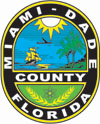| REPORT: |
Mr. Marcus Lapciuc, Chairman, Financial Recovery Board (FRB), noted the FRB had implemented policy objectives that were already having an impact on the finances at Jackson Memorial Hospital (JMH). He explained the JMH Chief Executive Officer (CEO) and he were visiting every Commissioner to explain all the changes that would be implemented. He noted the FRB planned to implement a very disciplined budget and cost-accounting measurement to better understand JMH mechanisms. Mr. Lapciuc pointed out that the FRB wanted to change the attitude at JMH into a “can do” attitude in which failure was not an option. He explained an entrepreneurial mind set would be implemented, and noted that JMH needed to be reinvented according to the following objectives:
• Be mindful of the changing economic and political forces;
• Be more of a patient and outcome-based health organization;
• Be focused on ambulatory care, outpatient and inpatient rehabilitation, and primary care clinics;
• Improve access; and
• Make JMH more affordable.
Mr. Lapciuc pointed out that JMH’s representatives needed to negotiate the annual operating agreement and basic affiliation agreement with the University of Miami. He noted that they would need to cut $144 million from the budget for the next fiscal year. Mr. Lapciuc explained that an additional trauma center in the county could impact the JMH budget by an additional $40 million.
Mr. Carlos Migoya, CEO, Jackson Memorial Hospital, noted he had been the CEO of JMH for six weeks. He noted his strategy was to look at JMH’s overall business model, which had not changed for 30 years. He pointed out that the charges at JMH had remained higher than at every other hospital, however, JMH’s staff took longer to set up appointments. Mr. Migoya explained that paying patients had chosen to go to other hospitals, and that uninsured patients continued to go to JMH. He pointed out that JMH intended to operate a health care clinic in Downtown Miami, and at Miami International Airport and the Seaport; and an ambulatory center at Florida International University, as well as the main Jackson campus, Jackson North, and Jackson South.
Mr. Migoya noted JMH was working on three revenue strategies:
1. Re-price the JMH Health Maintenance Organization (HMO). He clarified that this would involve re-pricing the University of Miami doctor partners.
2. Enhance Outpatient Care. He clarified that this strategy involved opening three ambulatory centers. He pointed out that JMH would partner with private doctors for these ambulatory centers, as a result of sovereign immunity.
3. Expand the International Program. He noted that doing this would target both international and domestic patients.
Mr. Migoya pointed out that JMH would be evaluating other efficiencies. He noted the budget for Fiscal Year 2011-12 had a $300 million funding gap that needed to be closed. He explained that JMH would be impacted by State of Florida Medicaid reform and Federal Medicare reform. Mr. Migoya noted that JMH’s leaders needed to generate some profits to provide money to reinvest in JMH.
Mr. Migoya noted JMH had a world class Trauma Center. He noted that the County’s residents did not need a second trauma center, and that the existing one could not be duplicated. He explained that he was looking for ways to make profits to offset unfunded mandates and the funding gap in the budget.
Mr. Mark Knight, Chief Financial Officer (CFO), JMH, noted JMH’s leaders engaged Price Waterhouse Cooper (PWC) approximately one year ago to help them implement operational initiatives. He explained that all the initiatives that PWC was engaged in were operating and moving forward on schedule. He pointed out that the benefit of these initiatives in the current fiscal year would be $225 million. Mr. Knight noted 70 initiatives were ongoing, and could continue to provide a fiscal benefit in Fiscal Year 2011-12. He explained that he would present the Committee with PWC’s detailed report at the July 12, 2011, Committee meeting.
Mr. Knight presented a PowerPoint presentation updating the Committee on the Group Purchasing Organization (GPO) and Procurement. He explained that JMH engaged the GPO to identify savings on medical supply pricing agreements, and to utilize consultants to help identify standardization opportunities in operating rooms and procedural areas. Mr. Knight noted JMH had $10 million in first year savings, explaining that the guaranteed savings for year one was $30 million, for three years was $48 million, and for the full term (5.5 years) was $220 million. He explained that the majority of the $10 million of actualized savings came from cardiac rhythm devices. He noted JMH was achieving savings through its Procurement Department. Mr. Knight advised that JMH’s executives had engaged a Chief Transformation Officer who would focus on continuing these GPO and Procurement initiatives, and on identifying new initiatives for JMH.
Chairman Diaz asked Ms. Torriente to work with the Public Health Trust CEO and the JMH Financial Recovery Board Chairman to ensure that future reports were distributed to Committee members three days before the prescribed meeting date.
Mr. Migoya noted he was available to meet with any Commissioner. |

